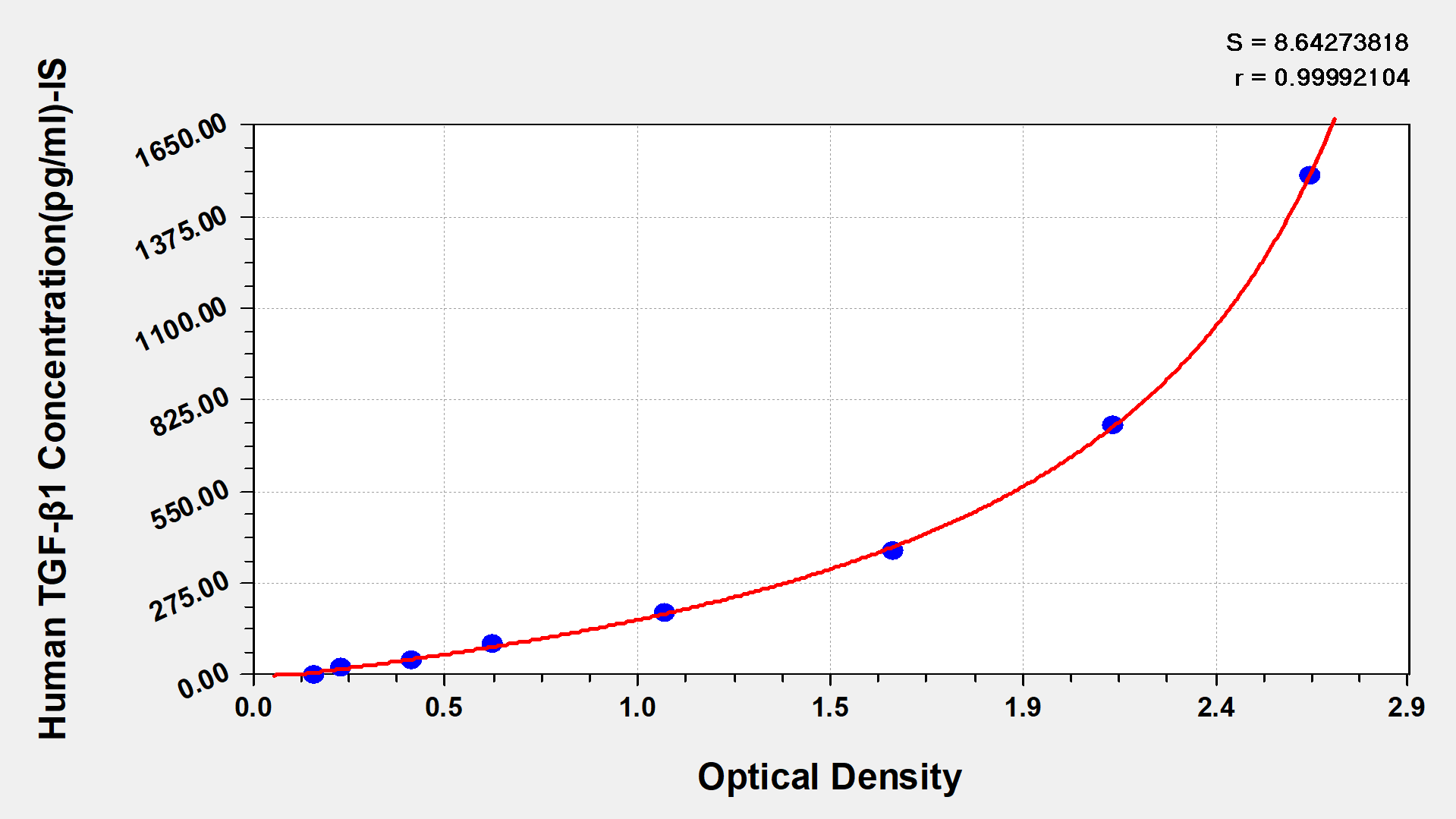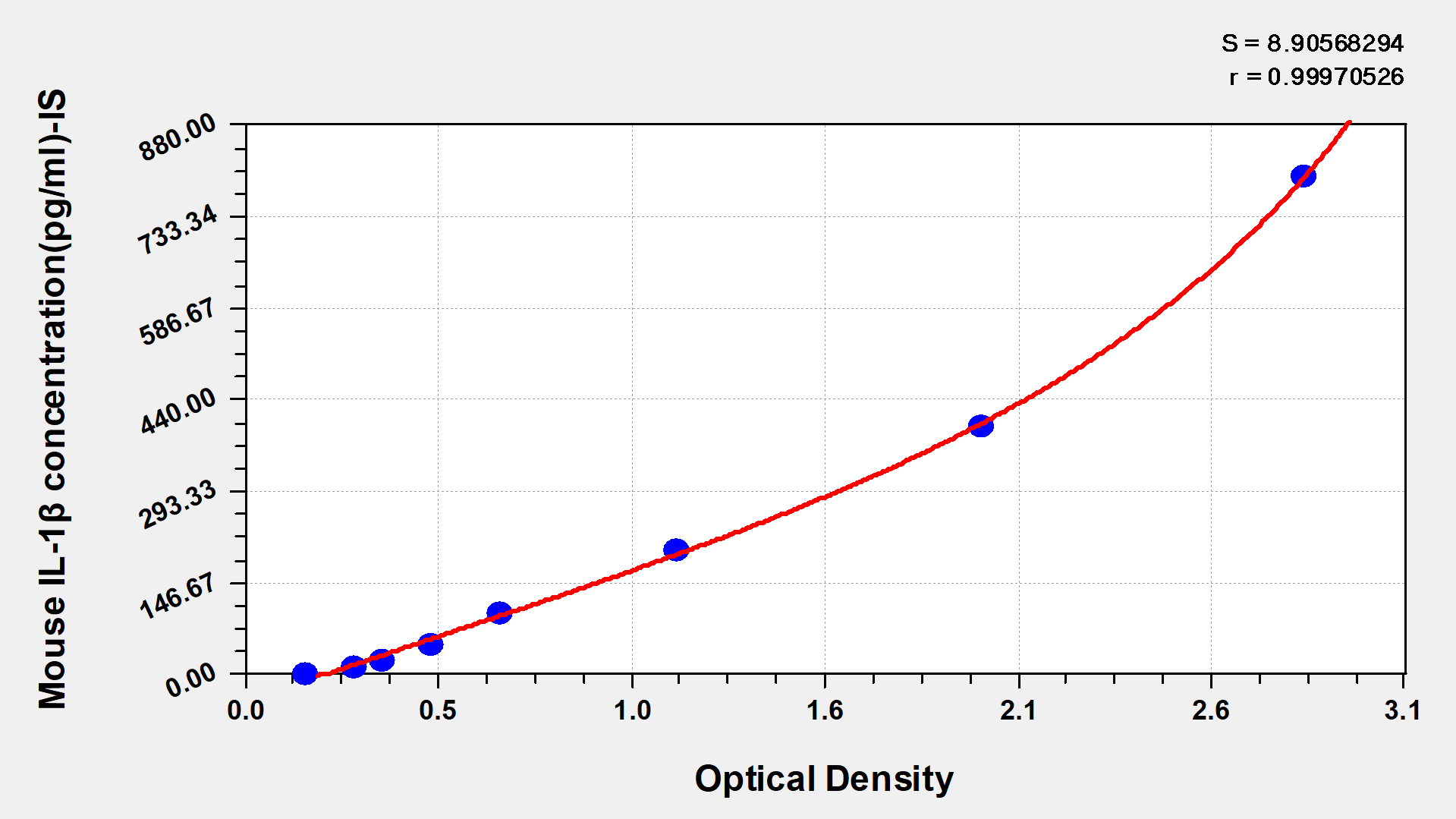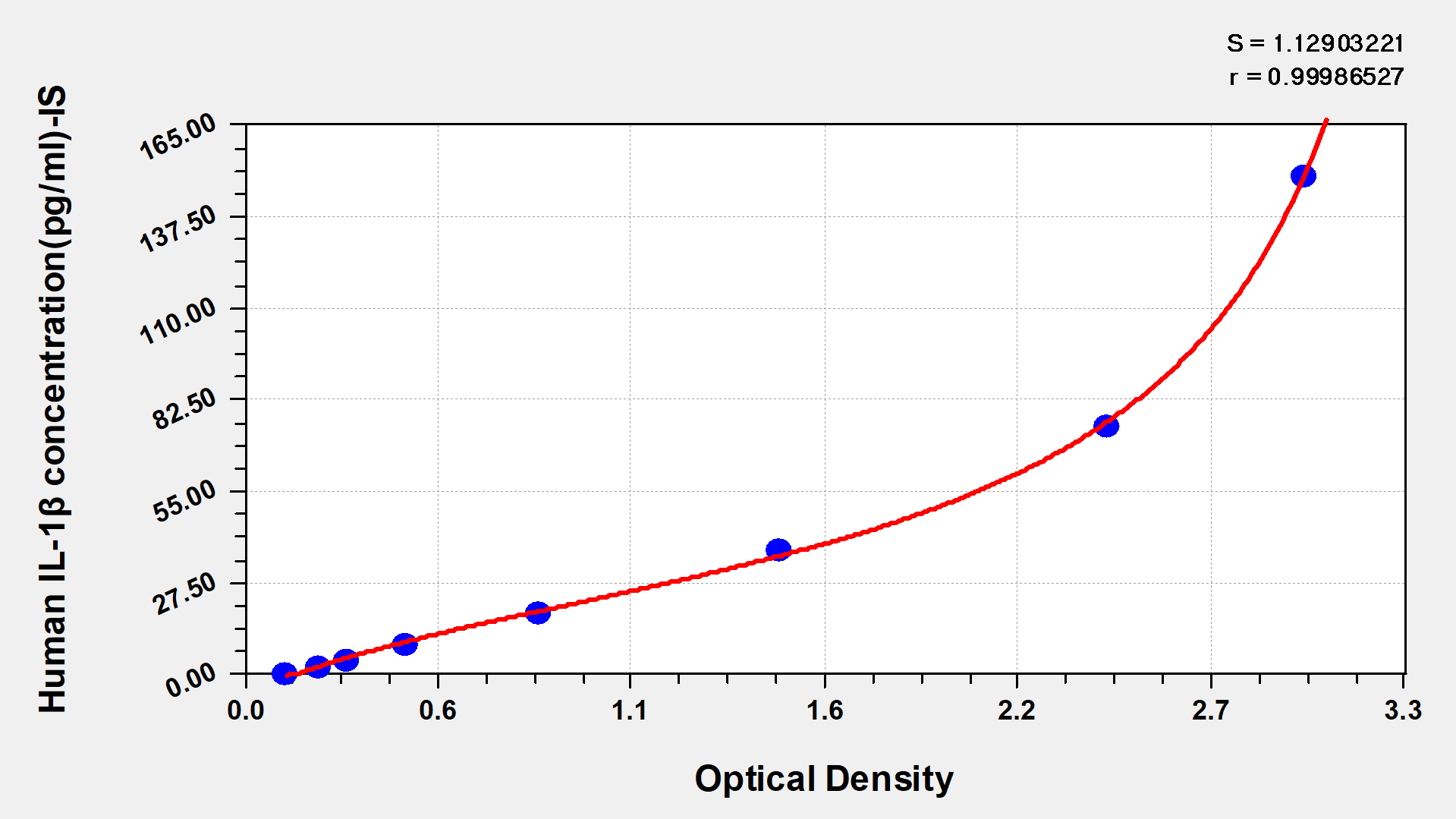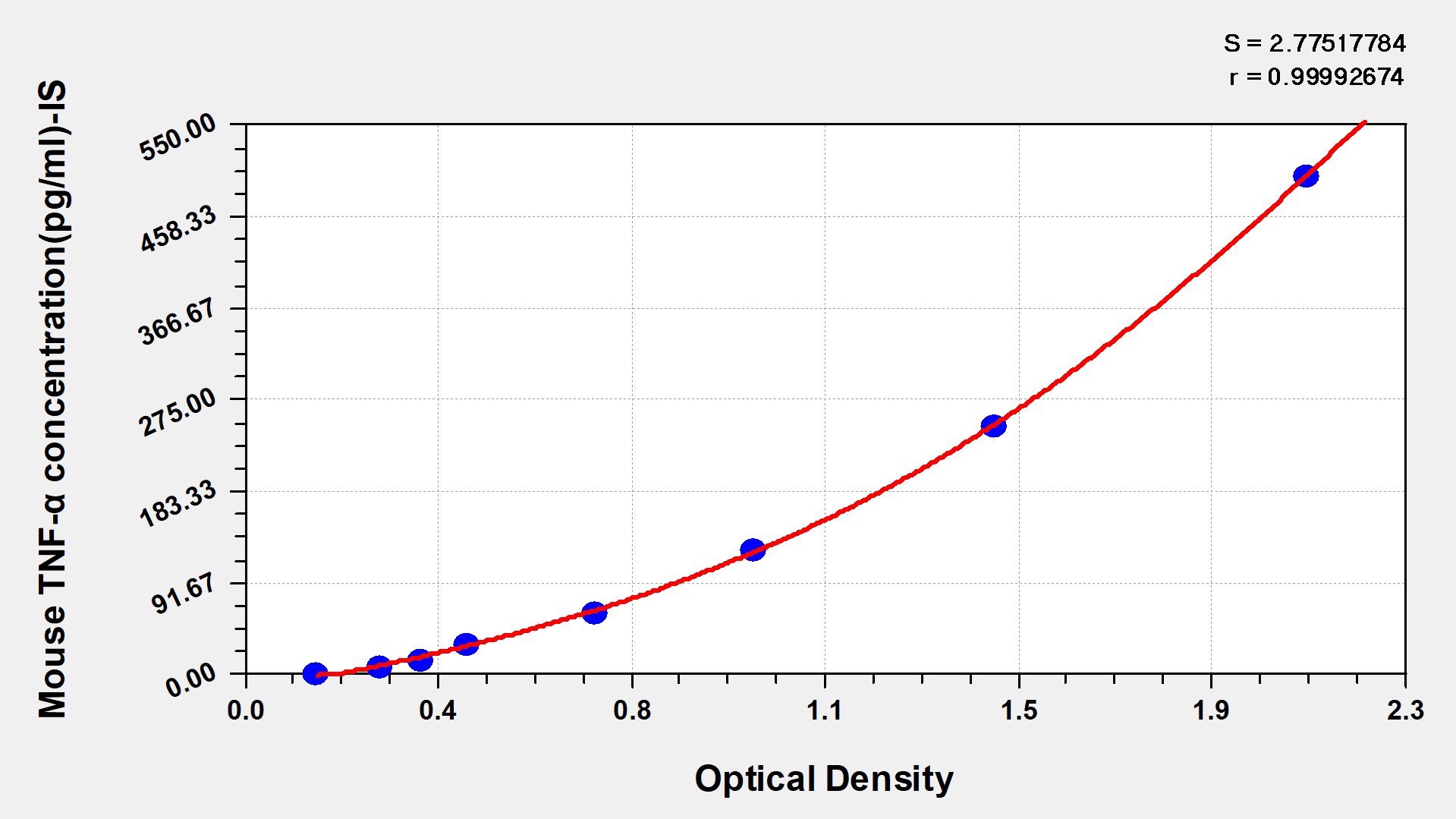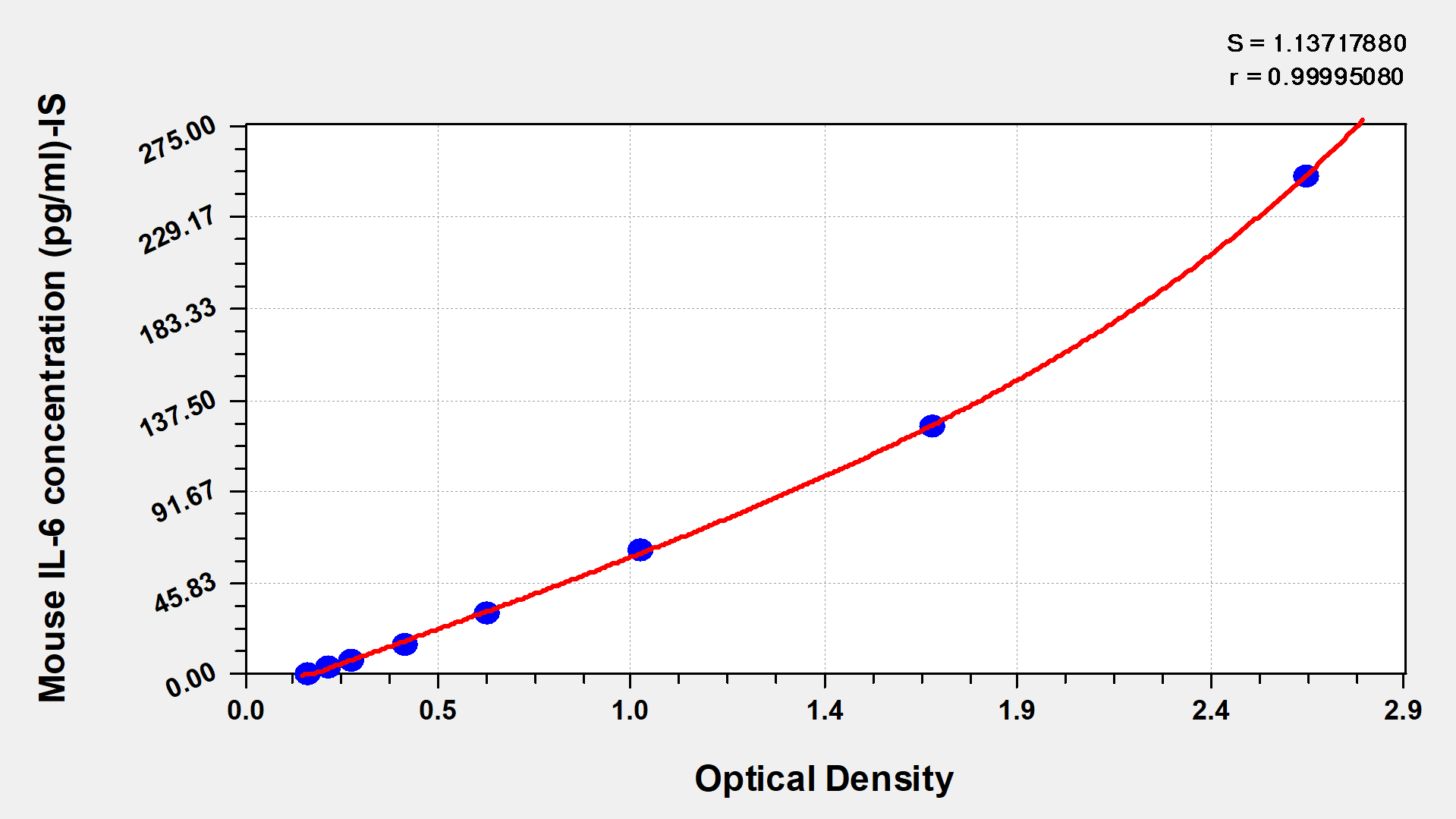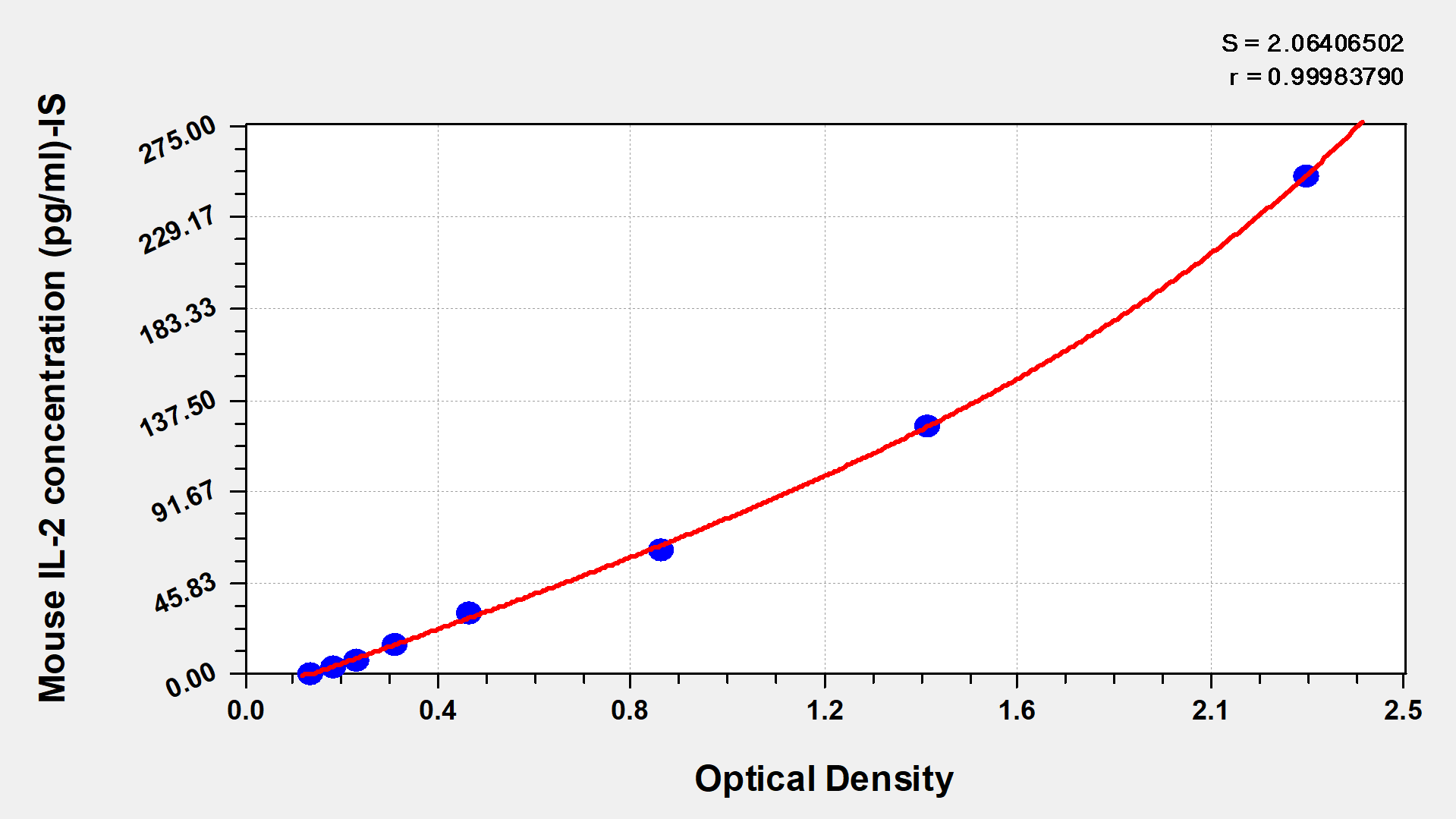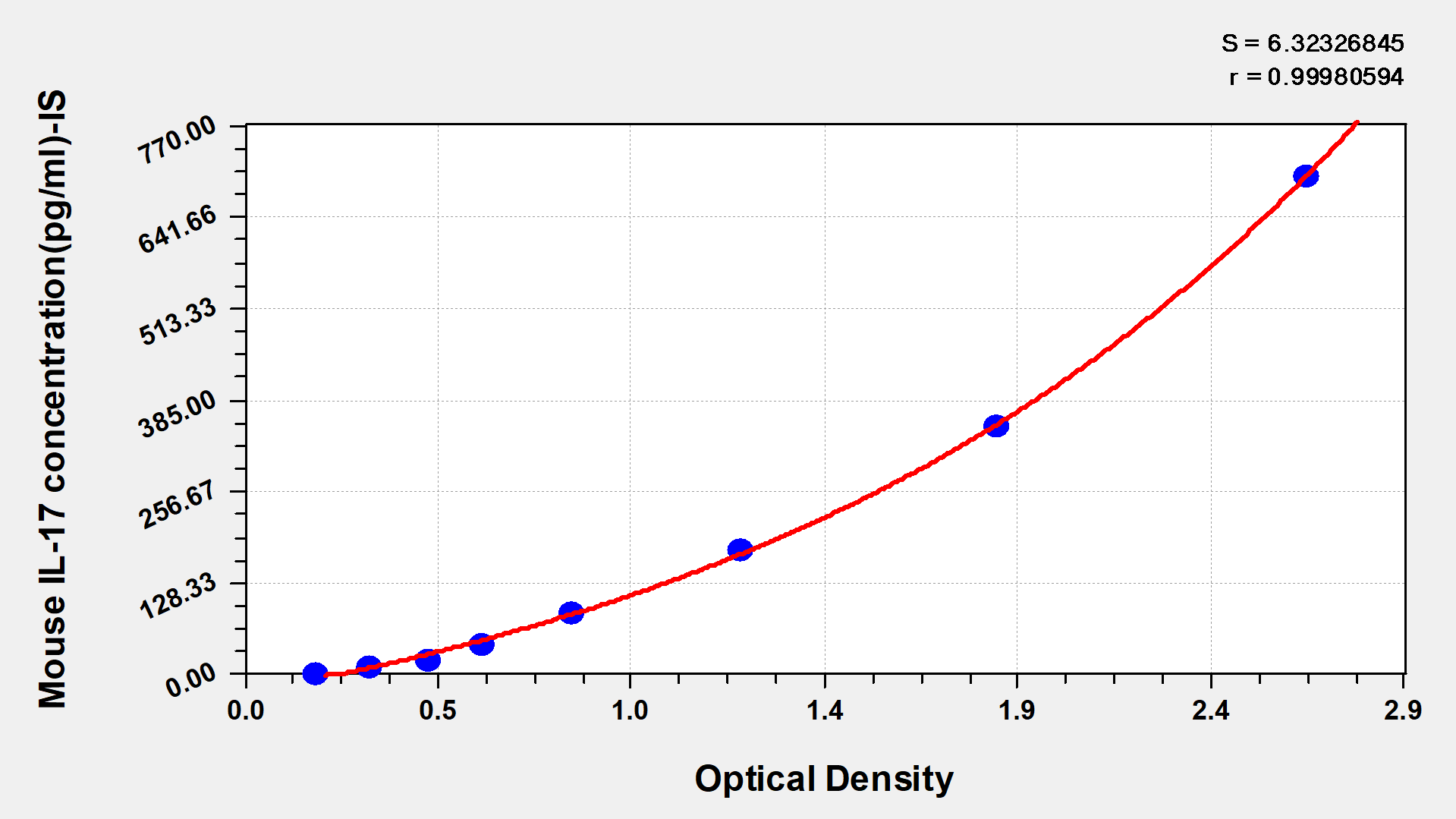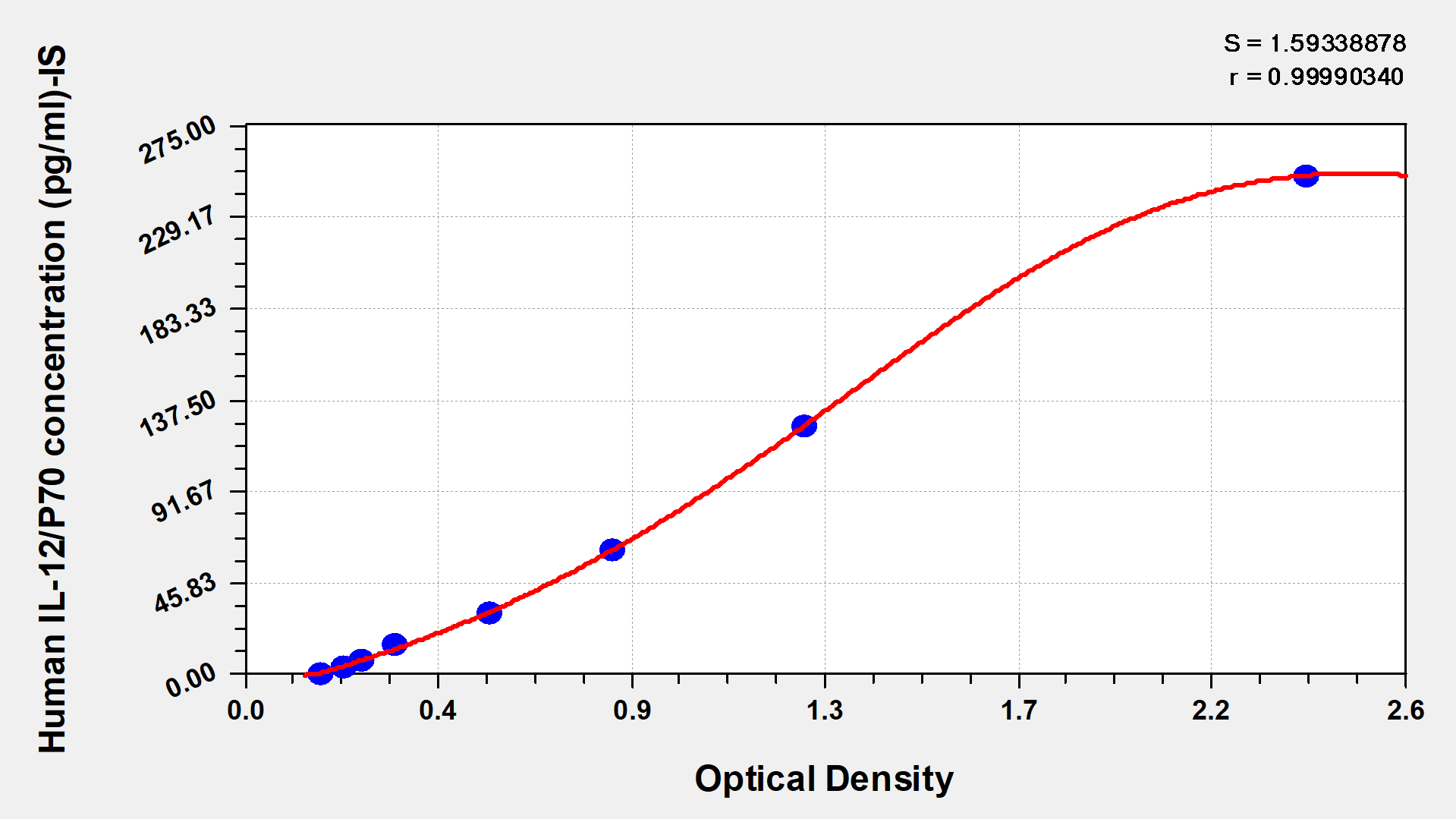Mouse Retinoic acid receptor responder protein 2(RARRES2) ELISA kit
-
中文名稱:小鼠視黃酸受體反應蛋白2(RARRES2)酶聯免疫試劑盒
-
貨號:CSB-EL019342MO
-
規格:96T/48T
-
價格:¥3600/¥2500
-
其他:
產品詳情
-
產品描述:小鼠視黃酸受體反應蛋白2(RARRES2)酶聯免疫試劑盒(CSB-EL019342MO)為雙抗夾心法ELISA試劑盒,定量檢測血清、血漿、組織勻漿樣本中的RARRES2含量。小鼠視黃酸受體反應蛋白2(RARRES2),也稱為TIG2或chemerin,是一種多功能細胞因子,通過激活趨化因子樣受體調節脂肪生成、代謝和炎癥。研究發現,RARRES2在乳腺癌腦轉移中表達降低,其缺失促進乳腺癌腦轉移形成,并通過調節脂質代謝和PTEN-mTOR-SREBP1信號通路發揮作用。試劑盒檢測范圍為0.625 ng/mL-40 ng/mL,靈敏度為0.411 ng/mL。科研人員可通過精準測定不同生物樣本中RARRES2的表達水平,為探究其在脂肪組織功能調控、炎癥信號通路或腫瘤進展中的作用機制提供可靠工具,尤其適用于代謝相關疾病模型、細胞分化研究及分子機制探索等基礎科研場景。本品僅用于科研,不用于臨床診斷,產品具體參數及操作步驟詳見產品說明書。
-
別名:Rarres2 ELISA Kit; Retinoic acid receptor responder protein 2 ELISA Kit; Chemerin ELISA Kit
-
縮寫:RARRES2
-
Uniprot No.:
-
種屬:Mus musculus (Mouse)
-
樣本類型:serum, plasma, tissue homogenates
-
檢測范圍:0.625 ng/mL-40 ng/mL
-
靈敏度:0.411 ng/mL
-
反應時間:1-5h
-
樣本體積:50-100ul
-
檢測波長:450 nm
-
研究領域:Cardiovascular
-
測定原理:quantitative
-
測定方法:Sandwich
-
數據處理:
-
貨期:3-5 working days
相關產品
靶點詳情
-
最新研究進展:RARRES2,也被稱為TIG2,是一種與腫瘤相關的蛋白質,其作用機制目前還不太清楚。最近的一些研究表明,RARRES2可能在腫瘤的發生、發展和治療中扮演著重要的角色。
-
功能:Adipocyte-secreted protein (adipokine) that regulates adipogenesis, metabolism and inflammation through activation of the chemokine-like receptor 1 (CMKLR1). Acts also as a ligand for CMKLR2. Can also bind to C-C chemokine receptor-like 2 (CCRL2), but with a lower affinity than it does to CMKLR1 or CMKLR2. Positively regulates adipocyte differentiation, modulates the expression of adipocyte genes involved in lipid and glucose metabolism and might play a role in angiogenesis, a process essential for the expansion of white adipose tissue. Also acts as a proinflammatory adipokine, causing an increase in secretion of proinflammatory and prodiabetic adipokines, which further impair adipose tissue metabolic function and have negative systemic effects including impaired insulin sensitivity, altered glucose and lipid metabolism, and a decrease in vascular function in other tissues. Can have both pro- and anti-inflammatory properties depending on the modality of enzymatic cleavage by different classes of proteases. Acts as a chemotactic factor for leukocyte populations expressing CMKLR1, particularly immature plasmacytoid dendritic cells, but also immature myeloid DCs, macrophages and natural killer cells. Exerts an anti-inflammatory role by preventing TNF/TNFA-induced VCAM1 expression and monocytes adhesion in vascular endothelial cells. The effect is mediated via inhibiting activation of NF-kappa-B and CRK/p38 through stimulation of AKT1/NOS3 signaling and nitric oxide production. Exhibits an antimicrobial function in the skin.
-
基因功能參考文獻:
- Systemic and hepatic chemerin, and chemerin receptor activation were not changed in hepatocellular carcinoma. Chemerin protein was induced in liver in NASH, but was unchanged in HCC tissues. Hepatic and serum chemerin and ex vivo analyzed chemerin receptor activation do not differ in murine NASH-associated HCC when compared to NASH. PMID: 29715085
- endogenously secreted chemerin plays an autocrine/paracrine role in white adipose tissue, identifying chemerin as a therapeutic target to modulate adipose remodelling. PMID: 27461525
- elevated levels of chemerin were found in colons of mice with experimental colitis, and a neutralizing anti-chemerin antibody improved intestinal inflammation PMID: 24727542
- Data suggest a potential role for chemerin and CMKLR1 in the regulation of inflammatory responses in the tumor microenvironment. PMID: 21752353
- Suggest reduction of chemerin could contribute to the antiobesity/antidiabetic properties described for alpha-lipoic acid. PMID: 26721419
- Study indicates that Chemerin plays a role in the negative cross-talk between skeletal muscle and adipose tissue. Specifically, Chemerin promotes the adipogenic differentiation potential and alters the myoblast cell fate from myogenesis to adipogenesis. PMID: 26164089
- Data indicate that chemerin may play an important role in regulating mitochondrial remodelling and function in skeletal muscle. PMID: 25754411
- The chemerin15 (C15) precursor, chemerin, and its receptor, ChemR23, are both upregulated after skin damage and the receptor is expressed by macrophages, neutrophils, and keratinocytes. C15 delivery dampens immediate inflammatory events. PMID: 24881877
- findings reveal previously uncharacterized regulators of chemerin expression in skin and identify a physiologic role for chemerin in skin barrier defense against microbial pathogens. PMID: 25659101
- A novel autocrine/paracrine role for chemerin in regulating osteoclast differentiation of hematopoietic stem cells PMID: 23766088
- this study reports that retinoic acid-activated endothelial cells can promote myeloid and plasmacytoid dendritic cell transmigration across endothelial cell monolayers through the endogenous production of chemerin PMID: 24470498
- Data suggest that chemerin/ChemR23 (chemokine-like receptor 1) signaling is not essential for adipocyte differentiation, but it appears to play a role in control of body weight and energy metabolism as overweight/obesity progresses. PMID: 24084834
- Studies using isolated islets and perfused pancreas revealed impaired glucose-dependent insulin secretion (GSIS) in chemerin-deficient mice. Conversely, chemerin transgenic mice revealed enhanced GSIS and improved glucose tolerance. PMID: 22355640
- Following TNFalpha treatment, increased elastase and tryptase modify the balance between activation and deactivation, elevating active chemerin concentration in adipocyte media and subsequent CMKLR1 activation. PMID: 23227233
- results of this study indicate that chemerin plays a role in the negative cross-talk between skeletal muscle and adipose tissue to regulate myogenesis PMID: 22906999
- Downstream targets of Chemerin/ChemR23 signaling are phosphorylated in vitro and are expressed in mouse tooth development, suggesting roles for Chemerin/ChemR23-mediated epithelial-mesenchymal cell signaling during tooth morphogenesis. PMID: 23053848
- These results rule out the direct anti-inflammatory effect of chemerin on macrophages ex vivo, described previously in the literature, despite the expression of a functional ChemR23 receptor in these cells. PMID: 22768214
- Chemerin increases in airways during viral infection; Chemerin appears to have anti-inflammatory properties, by acting on ChemR23 expressed by non-leukocytic cells dampening the inflammatory response promoted by the viral infection; the chemerin/ChemR23 system plays important roles in the physiopathology of viral pneumonia PMID: 22072972
- a fundamental role for chemerin/CMKLR1 signaling in clonal expansion during adipocyte differentiation as well as a role for PPARgamma in regulating chemerin expression. PMID: 21572083
- The current data show that adipocyte hypertrophy and chronic inflammation are equally important in inducing chemerin synthesis. PMID: 21084441
- Macrophage chemoattractant protein chemerin, which is generated at sites of inflammation, rapidly stimulates adhesion of peritoneal macrophages to fibronectin and VCAM-1 by promoting clustering of integrins VLA-5 and VLA-4, respectively. PMID: 20720202
- data support a novel role for chemerin/CMKLR1 signaling in regulating adipogenesis and osteoblastogenesis of bone marrow-derived precursor cells PMID: 19929432
- Results identified TNFalpha as a positive regulator of adipocyte-derived chemerin. PMID: 20363880
- Ablation of the chemerin gene RARRES-2 may result in mice with a more overt phenotype than that of ChemR23-deficient mice through removal of chemerin-derived ligands for ChemR23. PMID: 20363975
- Data provide evidence that serum chemerin levels are elevated in obesity and diabetes. PMID: 20228173
- chemerin is a novel adipose-derived signaling molecule that regulates adipogenesis and adipocyte metabolism PMID: 17635925
- Thus, the adipokine chemerin likely regulates adipocyte function by autocrine/paracrine mechanisms. PMID: 17767914
- These data establish that chemerin is a novel adipokine that regulates adipocyte function. PMID: 18242188
- Interleukin-1beta induces the novel adipokine chemerin in adipocytes in vitro. PMID: 19233230
- Rarres2 is highly expressed in adipose tissue and during adipocyte differentiation. PMID: 17640997
顯示更多
收起更多
-
亞細胞定位:Secreted.
-
組織特異性:Expressed in the differentiated adipocytes (at protein level). Abundantly expressed in the liver, adipose tissue including visceral, epididymal, and brown adipose tissue.
-
數據庫鏈接:
Most popular with customers
-
Human Transforming Growth factor β1,TGF-β1 ELISA kit
Detect Range: 23.5 pg/ml-1500 pg/ml
Sensitivity: 5.8 pg/ml
-
-
-
Mouse Tumor necrosis factor α,TNF-α ELISA Kit
Detect Range: 7.8 pg/ml-500 pg/ml
Sensitivity: 1.95 pg/ml
-
-
-
-



